TO
| Creator | Title | Description | Subject | Date | ||
|---|---|---|---|---|---|---|
| 1 |
 |
Morgan, Connor | Securitizing Climate Change Examining the Impact of the National Security Frame on Utah Political Elites | The partisan divide over climate change in the United States has led to long-term inaction in creating policies aimed at mitigating and adapting to the changing climate. This study explores one option for bridging the gap: reframing the discussion of climate change to better appeal to those who do n... | 2019 | |
| 2 |
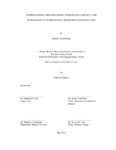 |
Aryaeinejad, Kateira | International organizations, intrastate conflict, and humanitarian intervention: Determinants of success | The objective of this research project is to determine which specific organizational structures and characteristics increase the likelihood that a humanitarian intervention will occur and result in success. With that goal in mind, I develop two main hypotheses which I then test against carefully cho... | Humanitarian intervention; Security, International | 2013-05 |
| 3 |
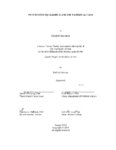 |
Saperstein, Elizabeth | Punctuated equilibrium and the Patriot Act 2001 | An all-encompassing theory to describe the policy-making process in modern political systems has yet to be determined. Therefore, no theory currently exists that uncontestably predicts future policy outcomes. In an attempt to describe the policy process and account for the process as one that fluctu... | Patriot Act (U.S.); Punctuated equilibrium (Evolution) | 2014-08 |
| 4 |
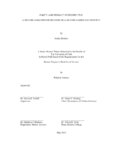 |
Roberts, Jordan | Parity and primacy in perspective : a second Anglophone decline or a second American century? | Much of the systemic theory in international relations focuses on a single explanatory variable: the distribution of capabilities, widely understood to be synonymous with the distribution of power. Despite the significant attention given to the distribution of power, there is still fundamental disag... | Balance of power - Research; International relations - Research; Great Britain - Foreign relations - 19th century; United States - Foreign relations - 21st century | 2013-05 |
| 5 |
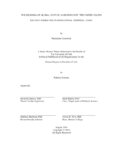 |
Comstock, Mackenzie | The Dilemma of Global Justice: Assessing Why the United States Has Not Joined the International Criminal Court | The United States has long been called the policeman of the world, intervening in international conflicts in order to promote peace and security on a global scale. With such a history, why then, has the United States not joined the International Criminal Court? A key actor in the establishment of... | International criminal courts - United States | 2016 |
| 6 |
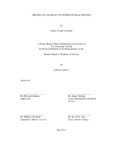 |
Andruski, Jordan Joseph | The social contract of international politics | The purpose of this research paper is to examine the extent to which states engage in the proposed idea of a currently forming international social contract and what effect have institutions had on this development. More specifically, the paper will examine the extent to which the development of int... | Social contract; International relations | 2013-05 |
| 7 |
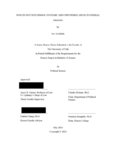 |
Gorfinkle, Zev | Wolves not watchdogs: systemic and unpunished abuse in federal prisons | This thesis investigates how systemic issues within the Federal Bureau of Prisons (BOP) enabled widespread sexual and physical abuse of inmates by staff. By comparing available prevalence estimates of both physical and sexual abuse with employee discipline data from the Bureau of Prisons Office of I... | 2024 | |
| 8 |
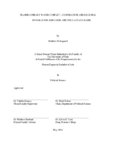 |
Kirkegaard, Matthew | Transboundary water conflict, cooperation, and regional integration: Mercosur and the La Plata Basin | Water politics become diplomatic concerns when watersheds cross international borders. But how do these relationships between states change when the nature of these international borders themselves change through economic and political integration? The purpose of this study is to consider the relati... | MERCOSUR (Organization); Water-supply - South America; Water-supply - Political aspects | 2016-05 |
| 9 |
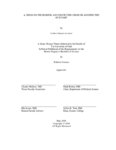 |
Gomez-Alvarez, Lorhen | A crisis on the border: an unexpected crisis or an expected outcome? | Increased immigration from the Northern Triangles countries has strained the current asylum structures. Overhauling detention and long wait times have plagued the system after the initial arrival of a large group of unaccompanied minors and then subsequently the arrival of large migrant caravans. Th... | 2019 | |
| 10 |
 |
Dean, Courtney | Food Aid or Industry Subsidy? the Power Dynamics of How the U.S. Feeds the World | In the 1950s the United States passed Public Law 480 and officially took up the cause of international food aid. Today, the United States is the largest provider of food assistance in the world accounting for over 50% of all aid. While other counties have stepped back or shifted their commitments t... | Public law - United States - History | 2016-08 |
| 11 |
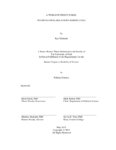 |
Palomaki, Kya | A world without nukes: International relations perspectives | What if nuclear weapons had been neither invented nor discovered? This is the question I take into consideration in this paper. This interesting scenario begs the answer parroted by bloggers and students of politics alike-without nuclear weapons, there would be nothing to stop belligerents from inva... | Security, International; International relations; Nuclear weapons; World politics -- 21st century | 2015-05 |
| 12 |
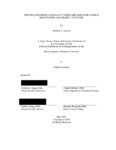 |
Johnson, Nicholas J. | The inflation reducation act's medicare part D drug price negotiation: an unlikely outcome | The Inflation Reduction Act (IRA) was signed into law on August 16, 2022, and the passage of this unassuming piece of legislation marks one of the most important advancements in health care policy in the United States. A key component of the law is its efforts to increase access and affordability of... | Medicare part d; inflation reduction act; drug price negotiation | 2024 |
| 13 |
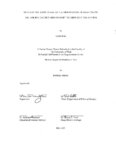 |
Ruiz, Loren | Beneath the dark cloak of U.S. deportation: Bureaucratic distancing tactics employed by the deportation system | U.S. deportation policy is implemented behind a dark cloak of secrecy. Distancing tactics are employed throughout the deportation process to prevent those participating within the bureaucracy from feeling empathy for those they process. Pachirat (2011) provides a three-part template of analysis for ... | Deportation -- United States | 2015-05 |
| 14 |
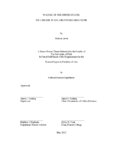 |
Jarvis, Thomas | Welfare in the United States: its current State and future directions | Public policy experts have proposed numerous combinations of liberal and conservative welfare policies in an attempt to capture the positive aspects of each and create a more efficient and equitable approach to welfare. In these times of economic turbulence it is paramount to understand where welfar... | Political Science | 2012-05 |
| 15 |
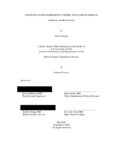 |
Fronberg, Erik | Contextualizing emergency powers and climate crisis in liberal democracies | This thesis develops a theoretical framework for and responds to concerns regarding the use of emergency powers to combat climate change in liberal democracies. Consensus in the scientific community maintains that the window for acting to mitigate the worst effects of climate change is rapidly narro... | 2022 | |
| 16 |
 |
Li, Danika | Understanding State-Sponsored Violence: Tiananmen Square | The Tiananmen Square Massacre presents an interesting puzzle to political scientists, as it contradicts traditional strategic theory that attacking one's own civilians erodes a government's base of power. The massacre defies these expectations through the ensuing decades of iron control the Communis... | 2018 | |
| 17 |
 |
Woolf, Katie | There's Something About Syria: Using Foreign Military Intervention in the Syrian Civil War to Assess Predictabilityin International Relations | This paper utilizes three strands of International Relations (IR) theory: realism, constructivism, and leadership theory to inform the actions of the United States and Russia in their intervention in the Syrian Civil War. First, a brief overview of the case is presented along with a review of the th... | 2020 | |
| 18 |
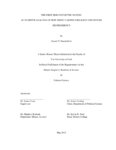 |
Shackelford, Daniel T. | The first servant of the nation : an in-depth analysis of how Jimmy Carter's religion influenced his presidency | Mitt Romney's recent run to become the nation's first Mormon president has made many Americans question what role religion plays in the presidency. While some fervent Romney supporters saw him as man chosen by God for the White House, opponents saw his overt commitment to his religion as a dangerous... | Carter, Jimmy, 1924 - Religion; Christianity and politics - United States - History - 20th century | 2013-05 |
| 19 |
 |
Meza, Francisco | Empowering inclusivity: assessing the necessity and impact of language access plans in local governments | This study investigates the critical role of language access plans in local governments to ensure equitable access to public services and foster civic participation among linguistically diverse communities. The research aims to shed light on the responsibilities of local government and the broader i... | 2024 | |
| 20 |
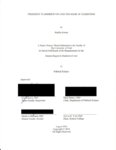 |
Jowers, Kaitlin | President Vladimir Putin and the Mask of Patriotism | With the current poor economic situation in Russia, Putin seems less keen on diversifying the economy than expanding Russia's influence worldwide. Indeed, while it would make sense in most countries to focus inward during domestic crises, Putin continually pushes Russia's resources, and focus, out, ... | 2016 | |
| 21 |
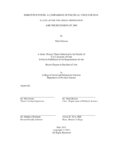 |
McInnis, Tillie | Disruptive power: A comparison of political voice for non-elites after the great depression and the recession of 2008 | This thesis investigates how non-elites influence policymaking in a time of large income and wealth inequality. To do this, I examine the tactics of disruptive power used by two groups following two major economic downturns in the U.S.: the industrial workers after the Great Depression in the 1930s ... | Power (Social sciences); Elite (Social sciences) | 2015-05 |
| 22 |
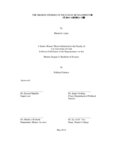 |
Lopez, Mauricio | The broken promise of inclusive development: the case of Peru | In recent years, Peru has been one of the fastest growing economies in the world, outpacing emerging giants of the developing world such as Brazil and Russia. From 2003 to 2011 Peru's GDP per capita almost tripled. Nevertheless, currently almost one third of the Peruvian population still lives in po... | Peru - Economic conditions - Regional disparities; Inclusive development | 2013-05 |
| 23 |
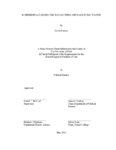 |
Kenney, Devin | Monumental failure: the navajo tribe and radiotoxic wastes | The extraction of uranium has a troubled history in the Navajo Nation, a history born of lack of representation, lack of interest, and ultimately, lack of regard for human life. The United States government failed to carry out their obligation to protect the health and economic well-being of the Nav... | Navajo Tribe - Government relations; Uranium mines and mining - Environmental aspects - United States; Uranium mines and mining - Waste disposal - Navajo Indian Reservation | 2012-05 |
| 24 |
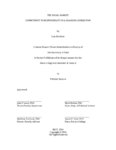 |
Hawkins, Lisa | The social market: Commitment to responsibility in a changing generation | As the partisan divide in U.S. politics grows wider, actionable and proactive policy making becomes more difficult to achieve. To address growing social issues, then, a more flexible and evidence-based approach must be realized. In the last 40 years, the United States has employed varying levels of ... | Public opinion; Social responsibility of business | 2016-05 |
| 25 |
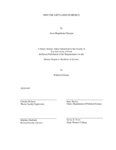 |
Chuaqui, Anna Magdalena | Why the left loses in Mexico | This paper explores the question: Why has the largest left-of-center party in Mexico, the Party of the Democratic Revolution (PRD), failed to win a presidential election since democratization? Through an analysis of the presidential campaigns of 200,2006, and 2012, this paper seeks to explain the fa... | Partido de la Revolución Democrática (Mexico); Mexico -- Politics and government -- 2000- | 2016 |
